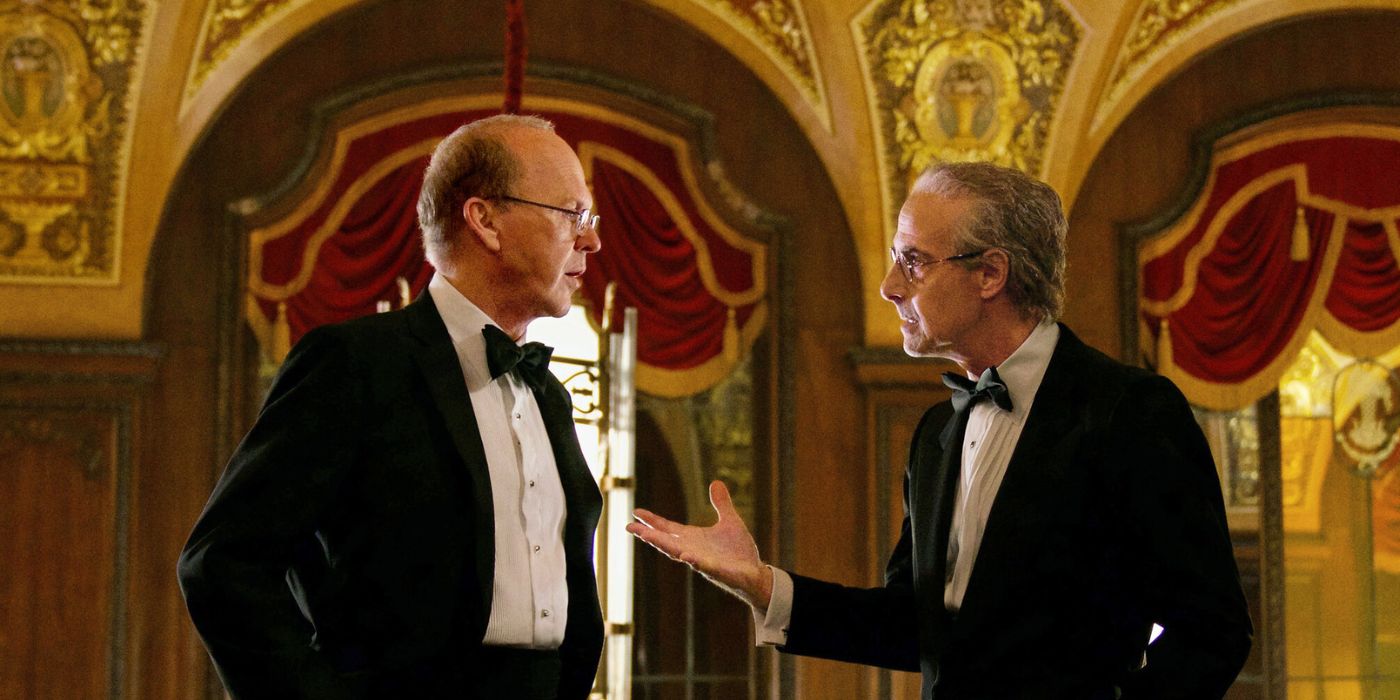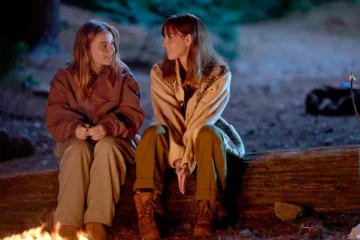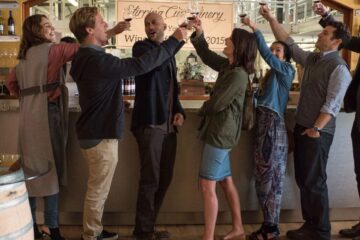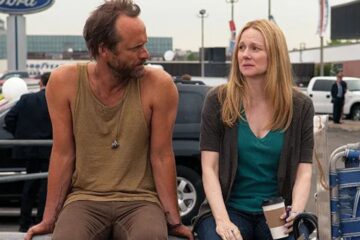For millions of kids like me who grew up learning about the world through movies, reality has been a bitter pill to swallow.
It took me twelve years of trial and error to realize the wisdom behind Tolstoy’s saying that all happy marriages are alike. That’s not to say that I have the definitive answer; what works for one couple might not pass muster for another. But, what I have come to understand is that the bedrock of a good marriage is the ability to laugh and unwind together.
While we’ve done the occasional crossword puzzle and DIY croissant adventure, our weapon of choice for unwinding and recharging after a long and exhausting work week is losing ourselves in the world of cinema.
Normally, I’m a lighthearted rom-com kind of guy for the weekend movie. Don’t get me wrong, I’ve done my share of Die Hard re-runs, and I can do a pretty good “My name is Maximus Decimus Meridisu…” but when you’ve got more salt than pepper in your hair, and you get control of the screen only after the little one’s finished The Amazing Adventures of Gumball in one sitting, you’d rather watch something that makes you laugh out loud.
The missus, on the other hand, is more of a connoisseur with a more developed palate that can’t stand any more of Sandler, Stallone, Ferrell, or Vaughn than what she had to sit through during our getting-to-know-each-other phase.
You don’t need to have written War and Peace to know that marriage, especially happy ones, requires you to find a middle ground. Both of us were in agreement that the aim of movie night was to shut out the world and our worries for the next couple of hours and escape into another world.
Sounds simple enough, but often, when you bolt the doors and draw the blinds, reality creeps in through the floor cracks.
It all began with a seven-year-old, a bicycle and a strip of land.
— — –
The year 1987 was a weird one for me. One of my favourite authors growing up, a certain Mr. Dickens, put it best when he called it both “the best of times and the worst of times.“
It was the year that I got my first bicycle. It was also the year that I saw a dead body for the first time. I don’t remember much about the night my grandfather was murdered, except that the news was being played on the TV. It was a normal night. I vividly recall the news reporter discussing some unrest in Ghazza ki Patti. That’s how normal it was. Even as a seven-year-old, I knew that the news report every night had to mention Ghazza ki Patti.
I thought it was just part of the script, like the national anthem we had to sing every morning at school. Nobody really knew what the words meant, but we all knew where the pitch went high and which parts required us to hang our heads and look at our feet when we came to “Saayahe khudaye zul jalaaal.”
All I remember from that night as I flew my imaginary aeroplane in the TV lounge when I heard the shots was the reporter talking about this weird place that was always on the news. That’s how normal it was.
The rest of the year passed by in a blur. Most of it was happy for us kids because Dad returned from abroad to be with us. But even as a kid, I could tell something was wrong with my mother. She would start crying at the oddest times. Then, in October, Dad came up with a plan. He was taking Mom to the land of Disneyland, cowboys, and Mickey Mouse.
It made perfect sense. Where else could anyone go if they wanted to feel good or to be happy? Was there ever a better place? My siblings and I stayed back happily with our grandmother. But I had one condition. They had to promise they’d bring me a cowboy set complete with guns, hats and boots, just like Clint Eastwood in The Outlaw Josey Wales.
Dad promised he would.
It was a win-win situation. Dad never had to convince me or my sisters that this was a good plan. For all I cared, he was preaching to the choir. Whenever I felt sad or missed Dad while he was in Saudi Arabia, I’d ask Mom if I could go watch one of Dad’s home videos that he’d record and send to us every couple of months. But what I did was watch Sylvester Stallone beat Clubber Lang in Rocky III or Ivan Drago in Rocky IV. I mean, sure, sometimes I’d also watch Ernie, Bert and Big Bird on Sesame Street, but the point is that in my mind, if there was a problem that Hollywood hadn’t solved in the world, it probably didn’t exist or wasn’t worth solving.
My faith was only strengthened when my parents returned in December, and my mother smiled like the 26-year-old she once was. I recall the news reporter saying something about the Middle East in the background as laughter and normalcy returned to our house.
My fondest memory of 1988 is all of us cramped on one rickety sofa, watching a bootlegged copy of Rambo III on our VCR. Afterwards, I made sure everyone got an eyeful of my fake-blood-stained rib cage as I stalked the neighbourhood, toting my plastic M16 and sporting my best Stallone snarl by curling my upper lip as far as it could go as Dad chuckled in the background.
Among the many things my parents brought back from America, one memorabilia that springs to mind now is a photo badge of the two of them. It’s a beautiful picture of my parents in the prime of their youth, laughing at the camera, their eyes full of a million promises. At the bottom of the badge, in bold letters: Suspected Terrorists.
I remember Dad laughing as he showed us the badge. We’d join in, too, because so what if terrorist sounded like a bad word? If Dad found it funny, then it had to be hilarious. My sister and I would even flip coins to decide who would get to pin to their shirts and show off to other kids. It was the perfect conversation starter and a way of showing our superiority over our classmates.
Our parents had been to the place most of us had watched only in movies. The land of the free, the home of the brave. Heck, they even had their pictures on a badge. Don’t worry about what it said. It was a joke, and we were in on it. Shucks, didn’t you see Rambo III? Who do you think helped him beat the Soviets? We’re the good guys.
— — –
We ended up watching Worth, starring Michael Keaton and Stanley Tucci. It’s about a lawyer who is tasked with devising a formula for compensating the victims of 9/11. To do so, he has to decide how much life is worth.
I had the movie on my list for a long time but had been avoiding it every time because, for some reason, 9/11 always wells up this guilty feeling as if I’m complicit in this great horror. Heck, when did I turn from being the good guy to…
Suspected terrorists.
In any case, the movie, while really good as usual — because it’s Keaton and Tucci — didn’t really do the trick. A horrible tragedy happens. There’s sadness and despair, and everything seems lost. And then, it’s beautifully resolved. We see numbers. They’re big numbers. It’s a good thing. Those numbers mean that people care.
But the movie didn’t do the trick. Something felt off, and if I’m honest, it’s been off for a while. I wouldn’t say that a veil has been lifted, and I can see now — because I don’t.
I can’t see.
I don’t have any answers.
All I know is that with each day, as more and more people die and the world does nothing, the memory of that seven-year-old boy who asked his mom to tear up her red shawl so that he could tie it around his head and imitate his favourite Hollywood hero gets more smudged and grimy.
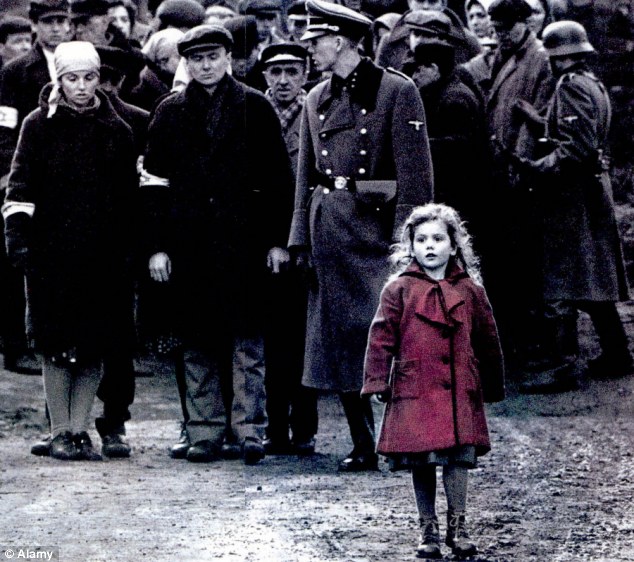
I remember watching Schindler’s List countless times and sobbing uncontrollably every time I saw the little girl in the orange jacket being led away to her death. I watched and cried because it was cathartic for me, knowing that even though a tragedy happened, it wouldn’t ever be repeated.
Because that’s what Hollywood made me and a generation of kids like me believe: evil, of all colours, shades, and hues, would always be defeated in the end.
But now, as I try and fail to ignore the reports and accounts of tragedies taking place, I can’t help but wonder. Like the proverbial falling leaves in the forest that nobody sees, do the lives of these children mean nothing since Hollywood hasn’t made a movie about them yet?
With each passing hour and every piece of news, I realize that the truth has always been there. Playing in the background. It’s only me who wasn’t listening.

